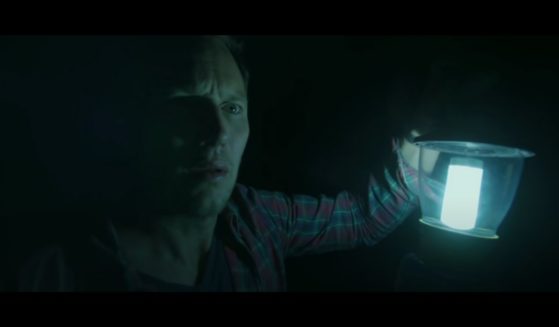Israeli Researchers Announce 'Dream' Discovery in Dead Sea Cave: 'We Rubbed Our Eyes to Believe It'
Israeli archaeologists have uncovered a remarkable cache of ancient weapons in a cave overlooking the Dead Sea.
In a Wednesday Facebook post, the Israel Antiquities Authority announced that four swords of Roman origin and a shafted weapon resembling a javelin had been found in a cave in the Judean desert.
“Finding a single sword is rare — so four? It’s a dream!” one unidentified researcher said of the discovery.
“We rubbed our eyes to believe it.”
A video from the Israel Antiquities Authority shows the amazement of the researchers as the swords were uncovered.
The weapons were carefully concealed in an “almost inaccessible crevice on the upper level of the cave,” the group’s Facebook post said.
They have “well-fashioned handles made of wood or metal” and blades measuring between 17 and 25 inches in length.
“These were standard swords employed by the Roman soldiers stationed in Judea in the Roman period,” according to the Israel Antiquities Authority.
Close-up photographs of the weapons reveal their exceptional state of preservation.
🏺Major find in Israel’s Ein Gedi Reserve: 4 pristine Roman swords and a javelin head from ancient times. Discover more: https://t.co/6WH4Uqufza
📷: Emil Aladjem/Israel Antiquities Authority pic.twitter.com/SJ3sF6zZKg
— The Jerusalem Post (@Jerusalem_Post) September 6, 2023
Archaeologists believe the Roman weapons were acquired by Jewish rebels keen on freeing Judea from Roman rule.
“The hiding of the swords and the [javelin] in deep cracks in the isolated cave … hints that the weapons were taken as booty from Roman soldiers or from the battlefield, and purposely hidden by the Judean rebels for reuse,” said Dr. Eitan Klein, one of the directors of the project.
“Obviously, the rebels did not want to be caught by the Roman authorities carrying these weapons. We are just beginning the research on the cave and the weapon cache discovered in it, aiming to try to find out who owned the swords, and where, when, and by whom they were manufactured.”
It’s possible the well-hidden weapons cache is connected to the Bar Kokhba Revolt of 132-135 A.D., one in a series of unsuccessful attempts to overthrow the Romans in the region.
A bronze coin from the time of the revolt was found near the entrance to the cave, as well as other artifacts dating back to the Roman period and the Chalcolithic period, 6,000 years ago.
Truth and Accuracy
We are committed to truth and accuracy in all of our journalism. Read our editorial standards.












